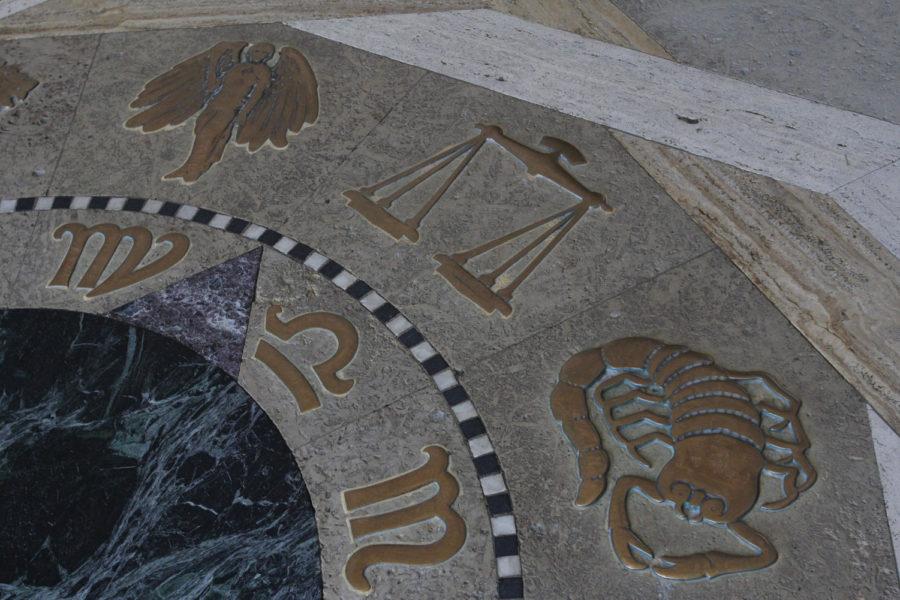How your zodiac sign affects your health
The bronze zodiac in the northern doorway of the Memorial Union was intended to be worn away over time so the images would be level with the floor. Instead, there is a well-known belief around campus that stepping on the zodiac is bad luck and will cause any student who commits the act to fail his or her next exam.
March 12, 2015
There has been on an ongoing myth at Iowa State that if a student walks over the zodiac located in the Memorial Union’s north entryway, that he or she is “cursed” with bad luck and inevitably will fail their next exam.
Most of you have probably heard of this myth, but a lot of you may not know how this tradition originated.
According to Iowa State’s MU website, when the architect William T. Proudfoot integrated the zodiac, he intentionally left some of the bronze throughout the design raised higher than the surface of the floor — intending for the users of the building to eventually “sculpt” it down to the same level as the floor.
Later in 1929, it is rumored that the students created the curse to preserve the zodiac because they liked the aspect of the raised design — doing the opposite of what Proudfoot originally intended.
Today, it is a tradition or more of an unspoken rule that students walk around the zodiac to ensure a good grade on their next exam.
Iowa State’s infamous zodiac curse often imposes an intimidating impression on students, similar to the effect horoscopes may have on some people.
According to wellnesstoday.com, historically, zodiac signs had a much greater medical purpose than they do today. It wasn’t out of the ordinary for physicians to use astrology as a tool to predict the probability of a patient developing serious diseases.
In today’s culture, our zodiac signs are not taken as seriously. Most of the time they are used to foretell someone’s future or enlighten people with a piece of advice or wisdom.
Although, there have been more and more studies conducted focusing on how one’s birth season affects their personality.
Prevention.com states, “[R]esearchers who study birth season and temperament have long surmised that the time of year in which you’re born affects levels of various neurotransmitters, like dopamine and serotonin, both of which play a role in a person’s overall mood.”
If you have ever thought that your zodiac sign is to blame for your personality, you may not be completely wrong.
Howard L. Forman, psychiatrist at Albert Einstein College of Medicine, advises people to take these findings in small doses. In the prevention.com article Forman states, “It’s not that your birth month is your destiny, it’s just setting you up to be more likely to have one type of mood or another.”
The study showed that people born in the summer were more likely to have rapid mood swings and are more irritable than those born in the fall or winter. If you are born in the spring and summer, you were more likely to have excessive positivity compared to those born in the fall and winter.
People born in the winter are more likely to become depressed, but are less likely to have an irritable mood paralleled by those born in other months.
Like Forman advised before, it’s important to take these findings with a grain of salt and learn healthy ways that best fit you when coping with personal issues.







